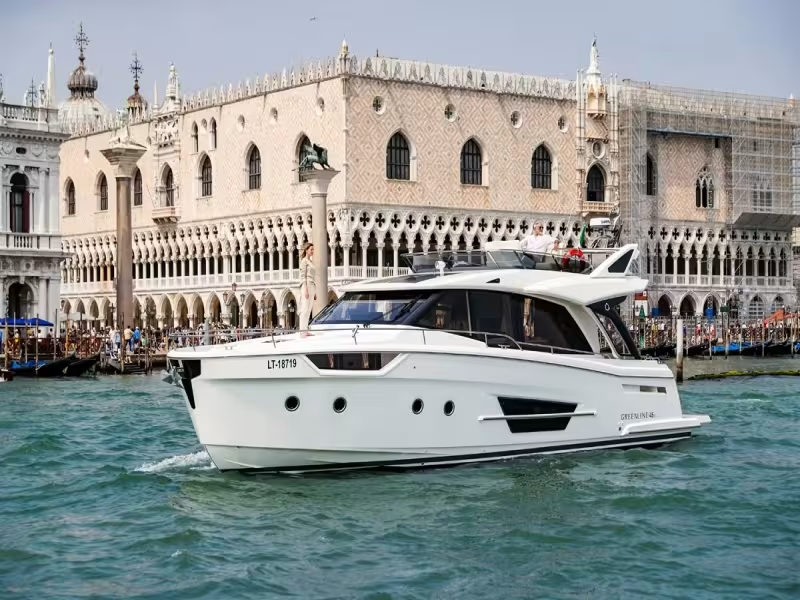
SHERIDAN, WYOMING – Jan. 17, 2025 – Greenline Yachts, a pioneer in responsible yachting, has announced a groundbreaking move to eliminate generators across its entire range of 39ft to 58ft yachts. This bold step is achieved through the introduction of the "Responsible Power Pack," a revolutionary technology that combines high-powered alternators and extended battery capacity to deliver silent, emissions-free power for days on end.
Sustainable Yachting Without Compromise
Greenline Yachts has long been committed to environmentally friendly boating. With solar panels and lithium batteries already standard on all models, the company is now taking its commitment a step further. The Responsible Power Pack allows owners to enjoy all the comforts of home, including air conditioning, without the noise, vibration, smell, or emissions associated with traditional generators.
"For conventional yachts, eliminating the generator is nothing short of revolutionary,” said Vladimir Zinchenko, owner of Greenline Yachts. “There is barely a yacht on the market in Greenline’s class of length and luxury that is capable of doing this. My mission has always been to further the concept of responsible yachting, and this shift towards using high-powered alternators and batteries will save tonnes of CO2 emissions.”
How Does the Responsible Power Pack Work?
Instead of relying on a separate generator, Greenline Yachts now equips its vessels with a high-powered alternator. This alternator harnesses the engine's power during operation to recharge a large lithium battery bank. Upon arriving at their destination, owners have a fully charged battery bank ready to power their onboard needs for days. Furthermore, the yachts' standard solar panels contribute to the energy supply, effectively extending the emissions-free period indefinitely.
The Greenline 45: A Case Study in Sustainability
The impact of the Responsible Power Pack is perhaps best illustrated by Greenline's best-selling model, the Greenline 45. Previously, this yacht relied on an 11kW generator, consuming 4 liters of fuel per hour and up to 200 liters over a 48-hour period at anchor, primarily to power the air conditioning unit.
Now equipped with the Responsible Power Pack, the Greenline 45 requires just 9 hours of motoring to fully charge its 34.2kWh batteries. This provides over 48 hours of emissions-free power, significantly reducing the yacht's carbon footprint.
“The figures are unequivocal,” said Chief Commercial Officer Luca Raumland. “Our Responsible Power Pack can eliminate a staggering amount of the carbon emissions associated with running a yacht at anchor. By tapping the engine’s spare power when the yacht is under way, we can make non-hybrid models almost as efficient to operate as their hybrid alternatives. In fact, with careful use of the aircon, the solar panels fitted as standard to every yacht can fully replenish the batteries during the day and keep you emissions-free at anchor indefinitely.”
Greenline Yachts: A Holistic Approach to Responsible Yachting
Greenline Yachts' commitment to sustainability extends beyond hybrid propulsion and the elimination of generators. The company's "superdisplacement" hulls are designed for maximum efficiency at all speeds, minimizing fuel consumption and environmental impact.
Furthermore, Greenline Yachts incorporates recycled materials into its construction process and utilizes environmentally friendly practices in its shipyard. The company is also developing an annual award to recognize owners who demonstrate outstanding commitment to sustainable yachting practices.
By embracing innovation and prioritizing environmental responsibility, Greenline Yachts is setting a new standard for the yachting industry. The company's dedication to sustainable practices empowers yacht owners to enjoy their time on the water while minimizing their impact on the planet.